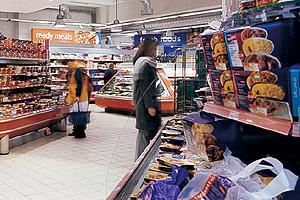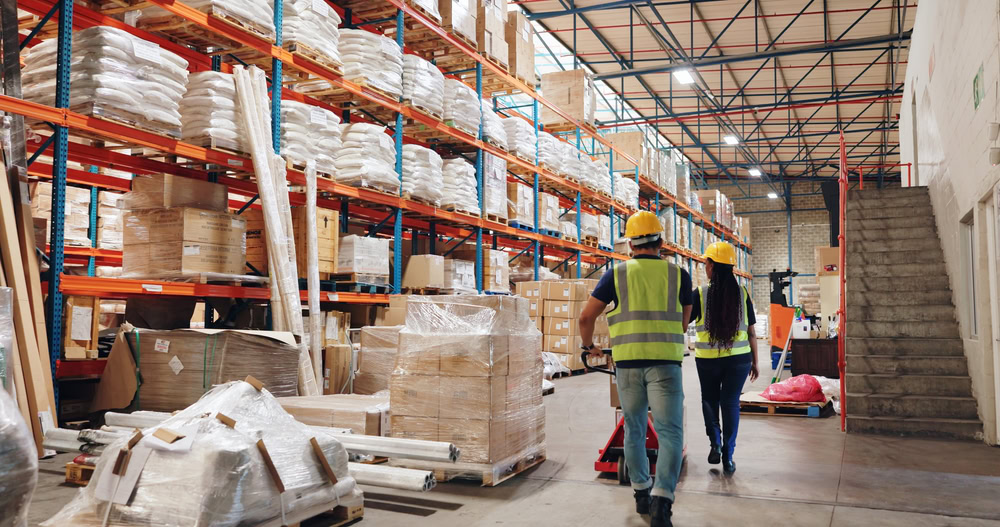
Government urgently needs to change its approach so retailers are incentivised to minimise unnecessary packaging and support maximum recycling
Cllr Paul Bettison, LGA
The call came as the LGA published research showing that up to 38% of packaging produced by supermarkets could not be recycled – with only 62% of packaging from Lidl and Marks and Spencers being recyclable.
However, the British Retail Consortium said the report took a “simplistic view” of what was recyclable and claimed that local authorities would be better off improving their recycling collections rather than trying to “tap” hard-pressed retailers for cash.
And, it stressed that the research also showed that retailers had reduced the weight of their packaging by 5% in six months – which it claimed was a “considerable” achievement.
Study
Under the LGA study, which was carried out by the British Market Research Bureau, 29 common items such as cornflakes, eggs and milk were analysed from supermarkets ASDA, Lidl, M&S, Morrisons, Sainsburys, Tesco, a local high street and a large market. The findings were compared with research commissioned by the LGA in October 2007.
Analysis found that purchases from local retailers and market traders produced less packaging and more that could be recycled than larger supermarkets. For instance, 76% of packaging from the local market was recyclable.
ASDA's packaging weighed the least among the major supermarkets – 646 grams, 69% of which was recyclable.
While most retailers had a 5% lower weight of packaging than in the first survey, only 2% more of the material (38% as opposed to 40%) was recyclable.
As a result, the LGA said that the days of the “cling film coconut” must come to an end. Although packaging producers already contribute towards its recycling through the PRN system, money does not go directly to local authorities.
Cllr Paul Bettison, chairman of the LGA's environment board, said: “Many countries on the continent operate a system where retailers contribute towards household collection and recycling services. This acts as an incentive for them not to produce excessive packaging in the first place.
“Government urgently needs to change its approach so retailers are incentivised to minimise unnecessary packaging and support maximum recycling,” he added.
Positive
The LGA acknowledged that some supermarkets were taking some “very positive” environmental initiatives – such as M&S agreeing to work with councils to part-fund a recycling plant in East London – and that some packaging was necessary to prevent food being spoilt.
However, he stressed that reducing packaging was “vital” to avoid higher council tax bills.
He said: “Reducing packaging is vital if we are to avoid paying more landfill tax and EU fines, which could lead to cuts in frontline services and increases in council tax.”
Liberal Democrats
Mr Webb said: “It is time the supermarkets used their huge market power with their suppliers to demand dramatic improvements in cutting out unnecessary packaging and increasing the proportion that can be recycled.”
BRC
Responding to this criticism, the British Retail Consortium challenged local authorities to make “positive” moves to encourage recycling rather than looking at ways to pile new costs on hard-pressed customers and retailers.
It said that the research covered a “highly-limited” number of products and actually showed that retailers had made food progress on reducing packaging since the Autumn.
Stephen Robertson, BRC director general, pointed out that retailers were already ploughing millions into recycling under existing producer responsibility legislation.
He said: “Retailers are contributing millions of pounds a year to help support Government approved recycling schemes. Retailers are giving local authorities £10 million to upgrade sites for collection waste electricals and they pay £4.5 billion a year in business rates towards local authority funding.”
Echoing sentiments expressed by ASDA last week, he suggested that councils needed to introduce standardised recycling collections to boost participation.
He said: “Rather than looking for new ways to tap retailers and, in turn hard-pressed customers for extra cash, local authorities would make a more positive contribution by developing their recycling facilities and increasing and standardising the range of materials they will accept for recycling.”
M&S
Dr Helene Roberts, head of food packaging at Marks & Spencer, said that she was “disappointed” with the LGA's report, and that 91% of its food packaging – and not 38% – was recyclable.
She added: “The LGA has chosen to only look at a skewed sample of 29 products out of our 5,500 lines, which are not representative. The real issue at the moment is the inconsistency in recycling facilities across the UK.”
Lidl was unavailable for comment.










Subscribe for free